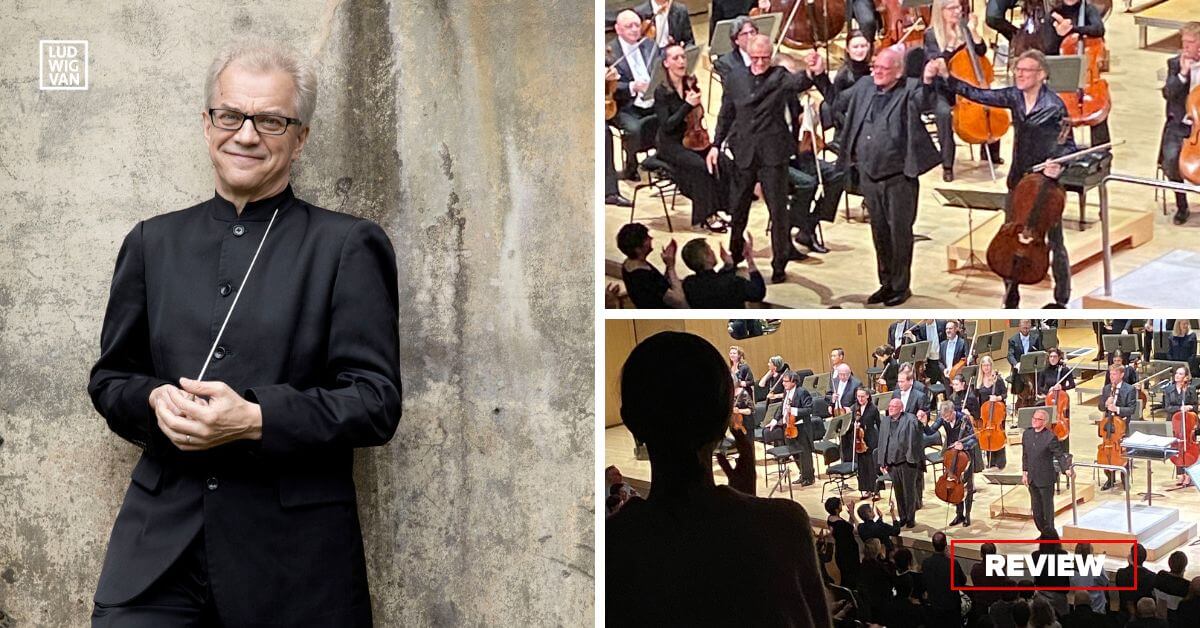
Toronto Symphony Orchestra. Grieg: Peer Gynt Suite No. 1. Detlev Glanert: Cello Concerto (Johannes Moser, soloist). Sibelius: Symphony No. 2. Osmo Vänskä, conductor. Roy Thomson Hall on March 27, 2024. Repeats March 28; tickets here.
Much stress is placed these days on renewing the repertoire. The Toronto Symphony Orchestra on Wednesday demonstrated the pitfalls of introducing new works without thinking through the consequences.
At the centre of this program in Roy Thomson Hall was the Cello Concerto by Detlev Glanert, a 60-year-old German best known in Europe for his operas. The world premiere was given January in Luxembourg by Johannes Moser under the baton of none other than Gustavo Gimeno, who remains music director of the Luxembourg Philharmonic as well as the TSO. These orchestras co-commissioned the work with the Cologne Philharmonie.
Oddly, Gimeno delegated the North American premiere to a guest conductor, Osmo Vänskä. I wonder how Vänskä can return the favour.
Ostensibly written in three connected movements, the 32-minute score scans as a compendium of causeless effects, some quiet, some noisy, some dissonant, some not. We heard anguished long tones from the cello, a violent cadenza, blaring orchestral interludes and many, many pianissimo passages that lingered on the edge of audibility. It is a time-honoured alternative to writing music that means something.
On no account could Moser, who projected cogently through all the comings and goings, be blamed. Vänskä, a conductor of clear gestures and many of them, drew virtuoso playing from the orchestra. In his program notes Glanert claims to prioritize the balance of soloist and orchestra. You could indeed hear everything — for better or worse.
It would be nice to report that Vänskä made amends after intermission with Sibelius’s Symphony No. 2, a score that should be in this Finnish conductor’s wheelhouse. It was certainly a brilliant performance, wherein lay the problem. With so many elements in the foreground — including, notably, penetrating brass — the elusive but mandatory element of atmosphere went missing. This sounded less like the heroic Second than the Concerto for Orchestra Sibelius never wrote.
All the same, there were opportunities for the TSO to affirm its excellence. Pizzicati by cellos and basses in the Andante were spot-on. Woodwinds in the third movement offered welcome episodes of respite. They were in fine form also in Grieg’s Peer Gynt Suite No. 1, the pops favourite with which the concert started. Moving things along smartly in Sibelius, Vänskä preferred slow tempos in Grieg. The dynamic range — from near-silent strings in Ase’s Death to the overwhelming percussion of In the Hall of the Mountain King — was formidable.
It should be noted that the audience did not share my reservations concerning the Glanert and the Sibelius, giving both hearty applause. Glanert was present to take a bow.
The crowd was admirably quiet during the performances. No clapping between movements. Too bad snacking and boozing are now tolerated in the hall. A couple in the row ahead of me were washing down their popcorn with beer. A strong ale, by the smell of it.
Are you looking to promote an event? Have a news tip? Need to know the best events happening this weekend? Send us a note.
#LUDWIGVAN
Get the daily arts news straight to your inbox.



